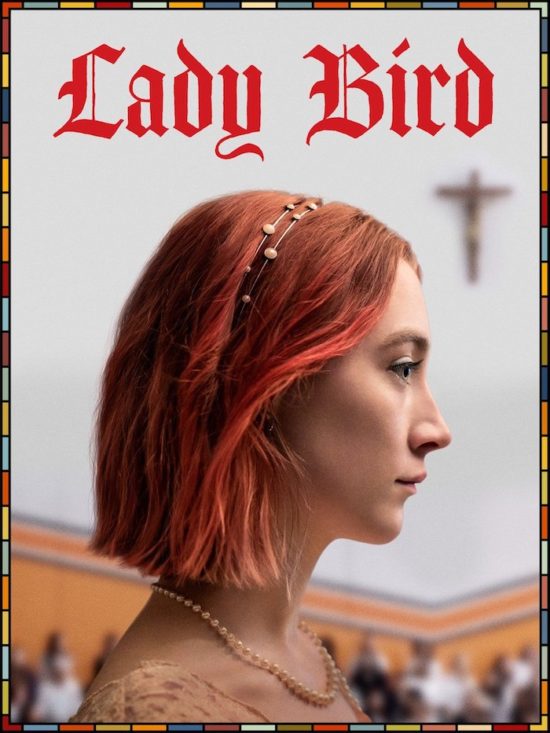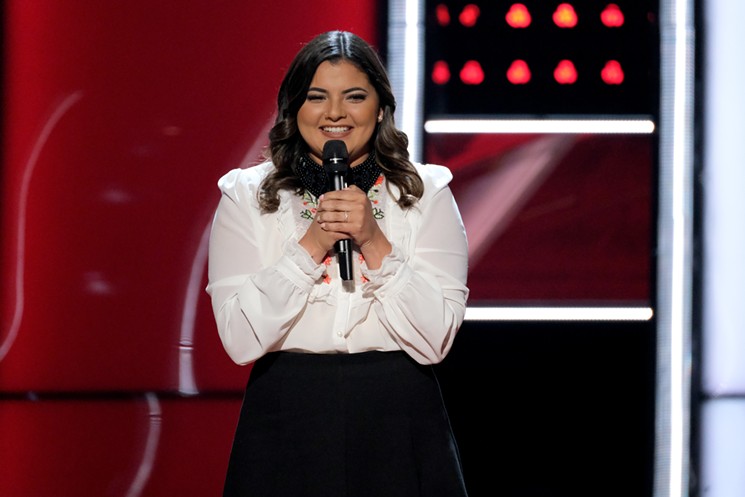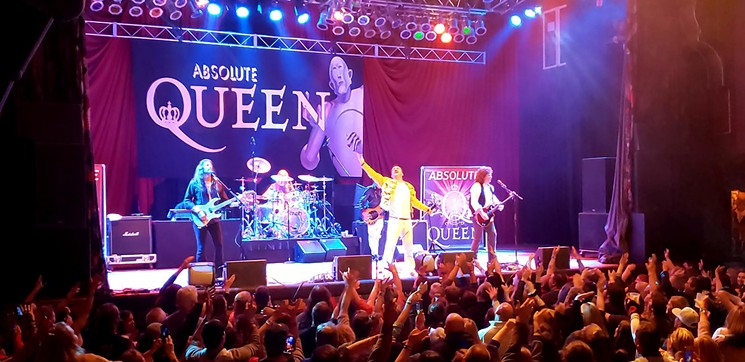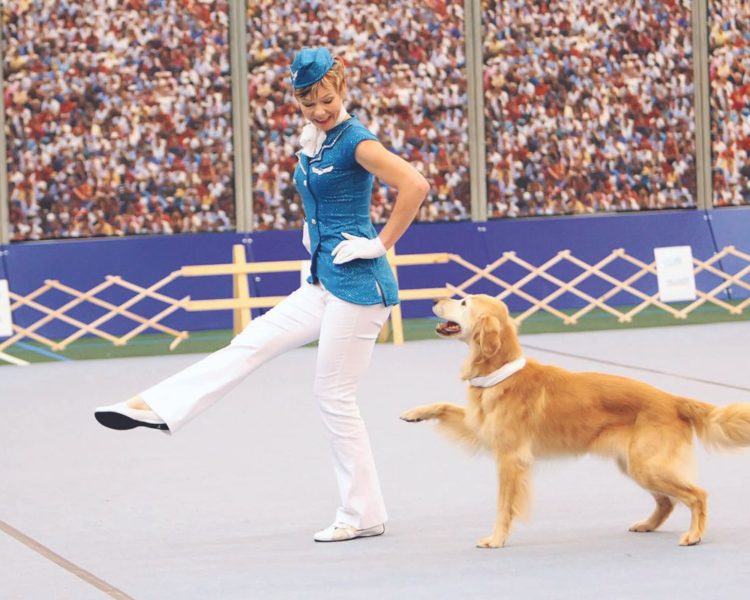Many characters have lost their virginity on the big screen, but something feels particularly true about the first-sex scene in Greta Gerwig’s Lady Bird, in which the title character sums up her first time as follows: “I just had a whole experience that was wrong.” Christine McPherson, who calls herself Lady Bird, sits on the edge of the bed with her boyfriend, Kyle, who doesn’t understand why she’s so “moody.” Her reasons aren’t necessarily exceptional: She just found out that he wasn’t a virgin after all—in fact, he isn’t even sure how many people he’s slept with. She was on top and she didn’t want to be. She got a nosebleed at the end. In short, she’s upset because sex wasn’t the way she thought it would be at all: It wasn’t special, it was awkward, and the narrative she’d crafted for herself about two people sharing a first experience turned out to be a lie. Kyle tries to tell her it’s all in her head: “You’re deciding to be upset.” “No, I am upset.” He tells her it’s not a big deal, compared to the war going on overseas (the film takes place in 2002, with the wound of 9/11 still painfully fresh). Why doesn’t she put things into perspective? She tells him to shut up. “Different things can be sad, it’s not all war!”
As someone who’s spent years watching sex scenes and rolling my eyes at how unrealistic and idealized they are, I found myself leaning forward in my seat for this one, because the portrayal felt uncomfortably reminiscent of my own first time. Though the details were different, the sentiment of “it was all wrong” still rang true. Nothing worked the way I expected it to, the guy was insensitive and self-serving, and I went home feeling profoundly sad, without fully being able to explain why. Years later, I tell this story to people because, while it may not be of worldwide importance, it says something about what we’re taught to expect from sex, and the feelings of confusion and inadequacy that can persist for a long time when that ideal inevitably doesn’t hold up.
The insistence that her feelings are valid, that they matter, and that no one else gets to tell her what she thinks is key to Lady Bird’s character, and scenes like this one are what make the film exceptional. It’s a sensitive portrayal of the way a moment like this can feel like everything to the person experiencing it, and an illustration of one of the most painful, yet necessary, parts of growing up—the realization that it isn’t going to happen exactly the way you thought it would. It’s also an example of the way a woman’s genuine experience can be belittled or cast into doubt. In a world where women are still so often told that they’re “too much”—too emotional, too needy—it’s satisfying to see a young woman shut down the implication that she should tamp down her emotions about something important to her, just because there are worse things in the world. It was a big deal to her, and that’s enough.
Lady Bird is full of small moments that are really not that small, and since it came out last November, it’s been praised for its complex, yet refreshingly ordinary portrayal of a woman coming of age. That combination is a rarer thing in film than you might expect. A senior at a Catholic high school in Sacramento, Lady Bird is an endearingly quirky individual who nevertheless is not immune to the social hierarchy at her school, and the seduction of popularity. She runs for class president with posters that feature herself as half bird/half human. She’s headstrong and not afraid to speak her mind, even when it gets her in trouble. Like most people, she’s full of contradictions and inconsistencies, and Gerwig’s script doesn’t condemn her for them, or force her into one idea of what a female character should be. Lady Bird acts confident sometimes and vulnerable in others. In one scene, she boldly tells a boy she’s not ready to sleep with him; in another, she lies about where she lives to a new friend because she’s insecure about the truth. She can be unreasonable and selfish, or make questionable decisions. She can champion female friendship while also pursuing boys when she’s interested in them, writing the names of her crushes on the wall above her bed. She’s not perfectly likable or unlikable; she’s a woman who’s allowed to act like an actual human.
In film right now, we often expect our female characters to be almost superhuman, in order to counter decades of hypersexual vixens and damsels in distress. To make up for weak or one-dimensional women on the big screen, we want every character from here on out to be Wonder Woman, a badass who doesn’t take shit from men, and can take care of herself. But that’s not entirely realistic either. Women are just as complex, flawed, and varied as men are, and they display strength in a multitude of ways. We needn’t be afraid to show this onscreen—in fact, we must. A young woman like Lady Bird still has a lot to figure out, but at least she feels plausible, interesting, human. If you think her problems and anxieties seem trivial, that says more about you than it does about her.
In the sex scene, Kyle’s subtle gaslighting and bending of the truth are indicative of the problematic behaviors that are woven into our sexual culture, so deeply embedded that they can be hard to see, because they seem so normal. By downplaying the fact that he let her believe he was a virgin, and trying to make her think that she misread the situation or overreacted, he is part of a system where women doubt their own feelings, and where men don’t understand why certain things are inappropriate or manipulative. The fact that Lady Bird doesn’t buy into it is significant. Not every young woman would be able to articulate herself enough to say that the experience bothered her or crossed a line—and seeing an example of it onscreen is important.
In the age of #MeToo and its backlash, it sometimes feels as if women are asked to rank the importance of their experiences by comparing them to others. Are you allowed to claim harassment if your experience wasn’t as bad as someone else’s? Do you have “proof” for why something bothered you or didn’t feel right? Are you making too big of a deal out of nothing? While considering the implications and intentions of an overall movement is important, and cultivating a sense of collective experience can be empowering, there is also a danger in asking each woman’s story to answer the exact same questions, or to represent all women. A Wonder Woman can come in many forms, after all, as can a triumph or a trauma when it comes to sexual experiences. We can benefit from listening to women’s stories even when we don’t quite relate.
Debates about what to do with individual experience, and how to define sexual violation, are coming to life with new vigor today, and the reactions to #MeToo make it painfully clear how little progress we’ve made. In a 1994 essay for Harper’s, Mary Gaitskill wrote about the dangers of a one-size-fits-all narrative when it came to sexual assault, since each person has different experiences and different responses to them. She argued that creating too many rules about the way a sexual encounter should or should not be could “assume a certain psychological uniformity of experience, a right way. The accusatory and sometimes painfully emotional rhetoric conceals an attempt not only to make new rules but also to codify experience.” Using a David Rieff article about victimhood as an example, she pointed out the danger in assuming someone else’s experience isn’t valid simply because you don’t relate to it yourself: “I question Rieff’s idea that suffering is one definable thing, that he knows what it is, and that since certain kinds of emotional pain don’t fit this definition they can’t really exist.” These experiences can’t be ranked or categorized, and something that crosses the line for one person might not cross the line for you. The point is that we should all be able to draw our own line, and articulate where it is.
In a meeting with one of the nuns at her school, Lady Bird begins to develop a different idea of what it means to be popular, or paid attention to. When the nun compliments her on her college essay, saying her love for Sacramento comes through clearly, Lady Bird is surprised. “I was just describing it,” she tells her teacher, who responds, “Well, it comes across as love.” “I guess I pay attention,” Lady Bird shrugs. “Don’t you think maybe, they are the same thing?” the nun says. “Love, and attention?” It’s a simple but beautiful definition—the idea of love as paying attention, as caring. Lady Bird begins to understand her mother’s nagging, which comes across as harsh or overbearing sometimes, as a form of love. She also realizes that caring about something, even a little thing, is important to her.
This is tested towards the end of the film, when Lady Bird gets ready to go to prom with Kyle and his friends. She tries to act like she doesn’t care when he doesn’t come to the door to pick her up (instead honking from his car outside), and goes along with it when the group decides to ditch prom because they think it’s lame. But then a song comes on the radio. It’s “Crash Into Me,” by the Dave Matthews Band (a song Lady Bird listened to during a breakup earlier in the film). Kyle says he hates it, and finally Lady Bird has had enough. “I love this song,” she says, and admits that she actually does want to go to prom. She gets dropped off at her friend Julie’s house, and they go to the dance together. It’s not the experience she thought she’d have, but it’s fulfilling in its own way, because it’s truer to who Lady Bird is. Once again, we see her learning to say what she wants and what she thinks, even when it goes against the people she’s trying to impress. We see her asserting that it’s ok to care, even when caring is the riskier move, even when no one else does.
Perhaps the greatest testament to the power of caring in Lady Bird is the close attention Gerwig pays to the female teen experience. She depicts scenes like this with a careful, delicate eye—a loving eye. It’s an acknowledgment that the everyday life and growth of one person is valuable and worth listening to. A significant point in Gaitskill’s essay comes when she describes the way young women won’t be able to make their own rules unless they are taught to think that way from a young age. She uses one of her own uncomfortable sexual encounters as an example, saying, “I was unable to stand up for myself because I had never been taught how.” Movies like Lady Bird are one way young women might begin to learn how, and to see it as an option.
Not everyone will reply “me too” to every story—does that mean they aren’t worth listening to? Does that mean we can’t learn anything from them? Sometimes just the communal act of feeling free enough to speak up and share stories with one another is significant. Sometimes simply paying attention is the ultimate act of love. Maybe if we all did it more, without so much comparing and contrasting, without being so quick to judge, we’d be as charmed or astounded by the experiences of the real people in our lives as we are by Lady Bird’s.
Originally written for Columbia Journalism School




